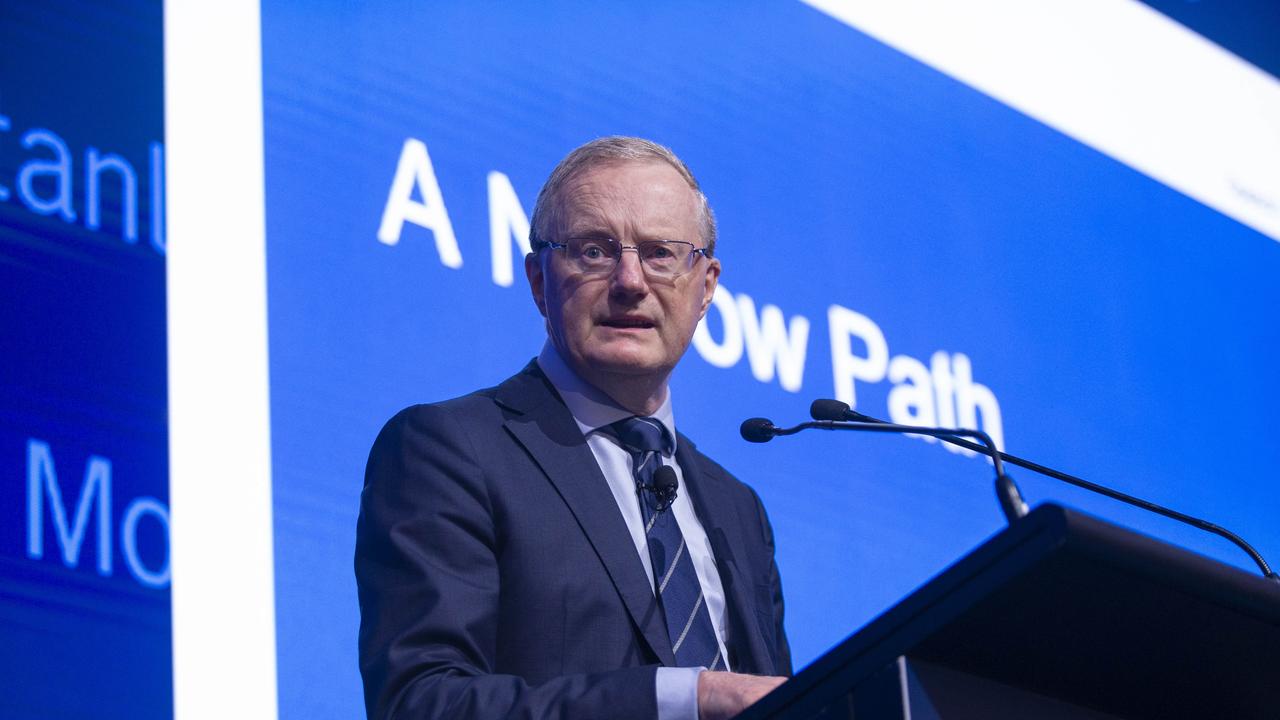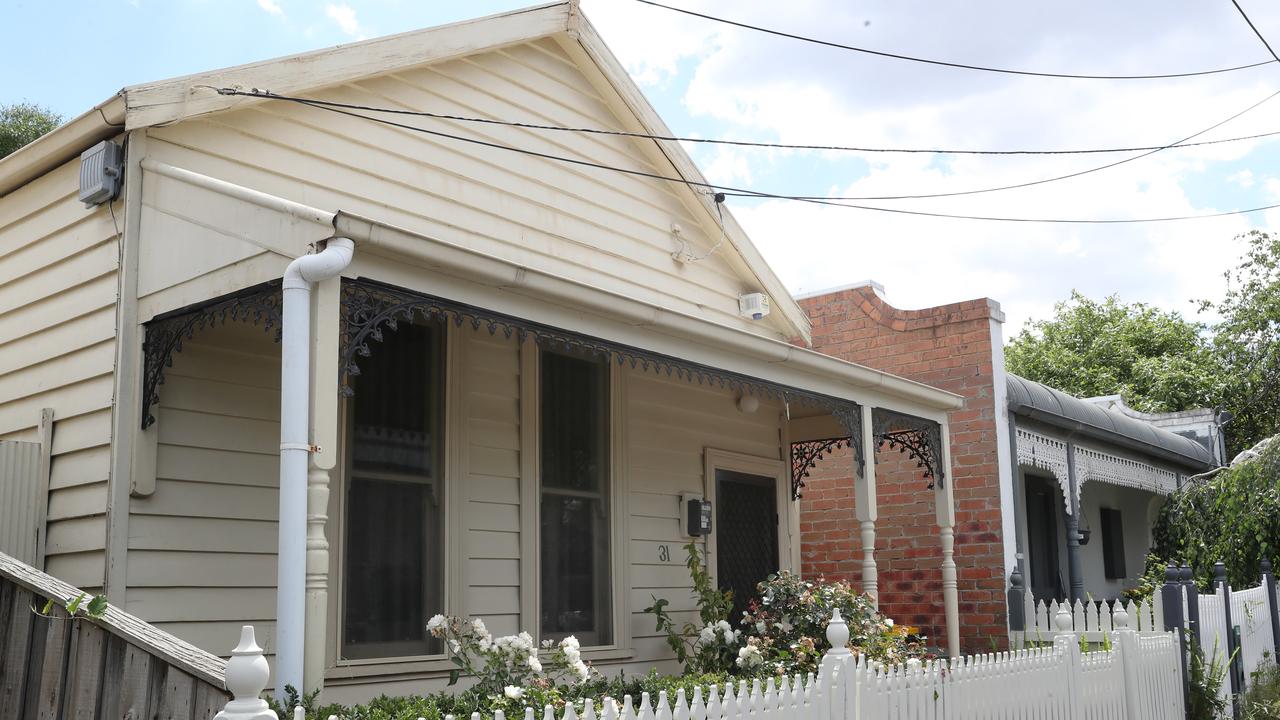Aussie mortgage holders to feel the sting as household savings plummet
Homeowners will soon be forking out record-high amounts on their mortgages as the Reserve Bank warns there could still be more rate hikes to come.
Mortgage holders will soon be handing over more of their disposable income than ever, with the Reserve Bank warning there are still more rate hikes to come.
Governor Philip Lowe made the grim prediction during a speech to the Morgan Stanley Australia summit on Wednesday, where he flagged soaring rents, energy prices and weak productivity growth were key concerns for the central bank.
“Real incomes have declined and required mortgage payments as a share of household disposable income will reach a record high later this year,” he said.
The governor’s address came just hours before the ABS released fresh data about the state of the Australian economy, which is slowing faster than expected.

Treasurer Jim Chalmers said it was clear the rising interest rates were “biting” with mortgage expenses doubling over the course of the last year.
“We see that in the numbers because households are pulling back on spending. They’re saving less, and they’re paying more in interest,” he said.
The household saving ratio fell to 3.7 per cent, the lowest level since 2008.
Since May 2022, the RBA has lifted the cash rate from 0.1 per cent to 4.1 per cent, in the most aggressive tightening of monetary policy since the 1980s.
But he said further tightening may need to occur to curb inflation.
Monthly figures show the annual inflation rate jumped from 6.3 per cent to 6.8 per cent in April, according to the Australian Bureau of Statistics.

Dr Lowe identified household spending trends, inflation outlook and jobs data due to be handed down later this month as key areas to which the board will be paying “close attention”.
The central bank governor acknowledged the pain rate rises were causing to borrowers Dr Lowe said he had no alternative to fight inflation.
“I acknowledge that the use of this tool comes with complications,” he said.
“Its effects are felt unevenly across the community, with rising interest rises causing significant financial pressure for some households.
“But this unevenness is not a reason to avoid using the tool that we have.”
He argued if he had not lifted rates, while it would help people in the short-term, it would have “hurt” Australians in the medium-term.
“If we had not tightened monetary policy, the cost of living would be higher for longer,” Dr Lowe said.
“This would hurt all Australians and the functioning of our economy and would ultimately require even higher interest rates to bring inflation back down.”



